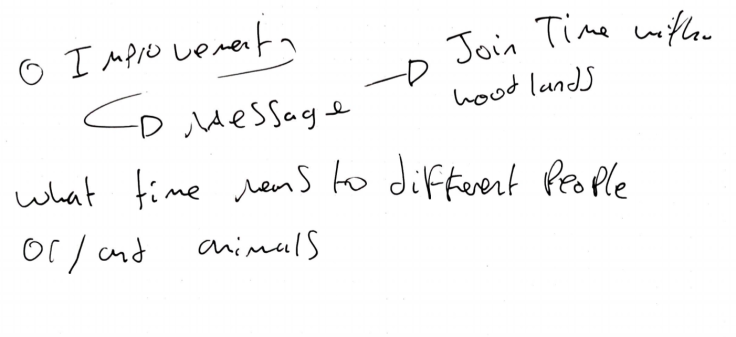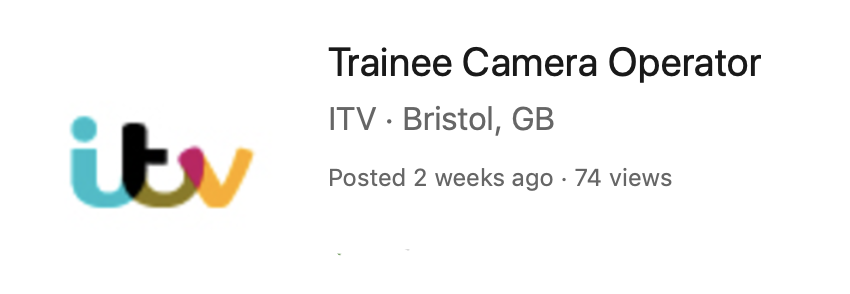Sheffcol
1st paragraph
Your personal statement should include a brief overview of who you are
The passion that you have for the subject and why you want to study it at a Further Degree Level?
Talk about a director/Cinematographer/Film Maker you espier to be as good as one day to perhaps even create something on their level of expertise.
Manic director experimental
I am a creative and focus driven person, who’s always had a passion for films. I strive to keep learning and adapting because if I don’t then my work will stay the same and never evolve. I have always had a passion for films before I was introduced to the media course which I am currently on, I mainly watched films like the normal people watching it but not understanding how they were made and the vast amount of various techniques used. It’s given me a new outlook on the film industry. – Adapt this to having a further more in-depth view on films and how to use the techniques used in them in different ways as well as when it is contextually correct than before having a basic understanding of the techniques used.
Why do I want to do this course? What’s my passion for film?
I am looking forward to being on this course as I believe it will not only be an amazing experience but give me an even more in-depth view into the world of television, films and Advertisement/client work. – change this not correct.
I want to learn more about the creation steps involved in creating different media pieces such as……
I have been taught to not just watch films mindlessly, but to analyse them in great depth, looking at the various concepts in a film, the things others would take for granted. The smaller details, from the camera shots to even the types of cuts used in editing are just as vital as the acting in the film.
Throughout the foundation degree course, I have gained experience from not only my own projects and productions but from working multiple clients such as Halle Ocastera,
What have I learned from this what have I gained from this experience?
Working with Sheffield United to create.
Working with Sheffield sharks to create interviews and a TV host show has helped me to gain a more in-depth view.
Not only throughout this course I have gained knowledge of the film industry but I have had a fun time as there is a creative side to it which I enjoy. Talk about some of my creations productions.
2nd paragraph
The skills which I have further developed on the Media Foundation Degree Course gained me greater, more valuable knowledge into the media industry. These skills(transferable as well as practical) will further assist me on the Ba(honours) course
Skills (transferable as well as practical) that you have gained during your studies and how they will help you in the course at university?
Talk about the projects linking to these skills as evidence that I have the skills?
What evidence can I provide for the personal qualities that I have said I have?
How will these help me to be a valuable good student on the course I am applying for?
How did I develop these skills/knowledge?
Be sure to include the skills you’ve gained, such as:
- Dedicated
- Creative
- Flexible
- Hardworking
- Communication
- Team Work
- Time Management
- Technical ability
Your strengths and any work experience/ project work – – – – – By doing the following projects/Work that I am proud of:
Horror Con(Gone): In the process of this short horror film I worked in a group to create a 5 minute short filmed in 2 – 1/2 days
Ordered and synced clips for editing.
created a motion graphics animation for the beginning clip.
– In the process of creating, editing and producing I gave ideas communicated, filmed the short horror film.
Drama Piece(One day): I worked with two actors from the drama department as well as with a crew to create an aesthetically pleasing sequence to portray the emotions in the scene and the conversations progression. as well as show the actor’s ability to act in order to be assessed upon.
Trailer (Stalker, Horror): created in a group of 3 in college created as a person being followed by a person evil a stalker. A trailer in a way for the short film above with a different main actor however with the same follower/stalker. In this trailer, I used a range of different shots and close-ups to create the horror trailer, therefore, showing my skills in camera operator. I also used a large variety of sound effects and mixed several soundtracks and blended them together to form the audio for the trailer. I used audio ability’s to create and form a suspense-ridden atmosphere to draw in the audience and want to watch the movie in a way an advertisement.
RAPTUS (title sequence): created using both my skills of editing, capturing, researching and computer-generated visual and audio effects. I used both self-captured footage and found footage. Using a variety of visual effects I produced an imagined/made up title sequence for a currently non-existent television series. I used said visual effects to convey to the audience what the title sequence RAPTUS was about and about its characters.
Alien hunter (short film, Sci-Fi) my first attempt at a short film: a short film I created in my first year of media education. A sci-fi short film about an alien and an alien hunter hunting him. I came up with the idea for this film and came up with some basic ideas and pre-production from which I then developed the idea while producing the film with a partner. I then edited together the film with my partner Thomas Cuttriss adding in both visual and audio special effect and finishing it off with two different soundtracks.
Seven deadly sins (Title Sequence) – motion graphics
My first real go at using compiling found footage and green screen effects with other different computer-generated effects.
- Something you’ve done with motion graphics/vfx.
Silent film, with Foley
- Star Trek Sound Replacement – what did I learn from it.
3rd paragraph
Hobbies
In my free time, I’m into watching a wide variety of films/series some conventional such as “Insert example/s” others experimental such as”Insert example/s” 1. manic.
from – add genres, to television series- genres examples. any genre why?
I also like to play games such as battlefield, titan fall, car games and teamwork games such as halo. Playing games such as this makes me feel that my contribution to the team will help users to be successful and gain a victory through dedication and hard work. – developmental skills.
4th paragraph
Where do you see yourself at the end of the course, as in what kind of job you would like to be doing?
At the end of the BA honours course, I see my self in A production role in the media industry as a Camera Operator for an organisation like _ insert. give a few examples. – I see myself preferably in the advertisement sector, or media organisations who make documentaries, because




 Seniority Level
Seniority Level
